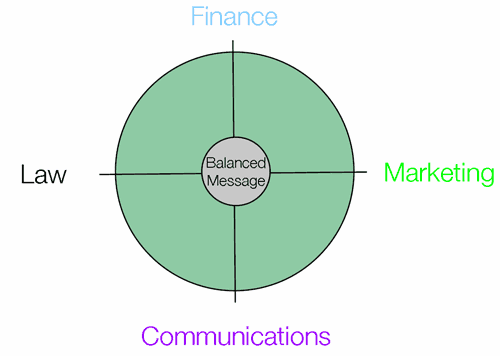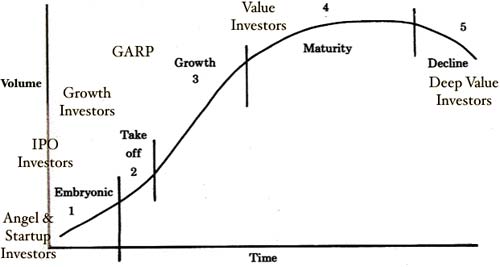
When it comes to social responsibility, corporations are in a tough spot. Traditional financial theory holds that corporations exist in order to maximize profits for shareholders. To the extent they divert corporate resources to fund social or environmental causes unrelated to their business, it represents a transfer of wealth from shareholders to a different constituency. Further, it is a transfer of wealth over which shareholders – the owners of the company – have little or no say. This is troublesome because corporations do not exist to redistribute wealth. To the extent that any institution exists to redistribute wealth, that role goes to governments.
This does not mean that corporations should not be concerned with the environment or the social context in which they operate. Rather, it means that corporations should be paying careful attention to those issues where they can have an impact and where the cost of ignoring them will have a detrimental effect on the company’s future prospects, image or share price. Spending money to make a difference in environmental and social issues that are part of how they operate is an acceptable corporate expenditure. Spending money to fund the chairman’s pet charity to save the Tibetan yak is usually not, unless you are in the business of mountain expeditions.
How does all of this fit into investor relations? In my twenty-five years of talking to investors, it has been rare that major institutional investors raise these types of issues. Institutional investors focus on your company’s future prospects, back-tested against your current performance. Unless your company’s future prospects are being impacted by environmental or social issues, most investors don’t seem to care. There are a few socially responsible investment firms, but I’ve never really seen them have much more than a gadfly effect.
So does this mean corporations should just ignore the issue? You probably can, but I would hope not. Your company is probably doing things that you can point to as responsible corporate citizenship. Most companies are constantly testing ways to save money by eliminating waste and inefficiencies. The best of these ideas often result in both costs savings and benefits for the environment. For example, every social activist’s favorite target, Wal-Mart, has done many such things. Here’s an illustration from the book The Wal-Mart Effect, by Charles Fishman: in the 1990s, Wal-Mart came to the conclusion that there was no need for deodorants to come in a separate box. The cardboard box added cost, took up shelf space and required trees to be cut down to make the cardboard. Yet the box didn’t add anything to the customer experience and surrounded what was already a perfectly good container. So Wal-Mart worked with manufacturers to get rid of the boxes. As a result, the product cost less to produce, some of which was passed along to consumers, and the environment benefited because the demand to cut down trees for cardboard was reduced. (One can only hope that they are working on the same thing with respect to blister packs.)
Good companies undertake these types of projects all the time. A good investor relations practice is to make a list of all the projects your company does to eliminate waste and inefficiencies or to make the work environment safer. The next time you’re questioned about your company’s commitment to the environment or social causes, pull out your list and discuss it along with the comment “Look, we can’t be all things to all people – our resources, just like everyone else’s, are limited. But we do choose to try and change things for the better where we can have an impact.” Better yet, be proactive and talk about these things as part of your regular communications.
I am not enough of a Pollyanna to think that this will mollify activist investors with a militant agenda, but you’re not going to make them happy anyway. The objective here is to have a well-reasoned response that shows you are influencing things to benefit your customers and the environment in which you operate. And, like Wal-Mart, you probably shouldn’t expect to receive too much credit for what you do. After all, as Kermit the frog said, “It’s not easy being green”.
 Those that are involved in investor relations recognize that in order to do it right, you need to combine skills from the disciplines of finance, marketing, law and communications. Underpinning these disciplines are a deep understanding of the company you represent and knowledge of how the capital markets work. So there are a lot of factors at play. Combining these factors in a coherent message can be a tricky business, because if one chooses to emphasize one factor over another the entire message can suffer.
Those that are involved in investor relations recognize that in order to do it right, you need to combine skills from the disciplines of finance, marketing, law and communications. Underpinning these disciplines are a deep understanding of the company you represent and knowledge of how the capital markets work. So there are a lot of factors at play. Combining these factors in a coherent message can be a tricky business, because if one chooses to emphasize one factor over another the entire message can suffer.
 When I teach or give a public talk, I like to bring in a variety of sources in order to keep the audience engaged (and also to prove the worth of my liberal arts education earned many years ago). I find that introducing something interesting, which, at first blush has no connection to the topic, helps to get people thinking about what you’re saying. Of course, sometimes it’s the only thing they remember from your talk, but I’m happy if they remember anything.
When I teach or give a public talk, I like to bring in a variety of sources in order to keep the audience engaged (and also to prove the worth of my liberal arts education earned many years ago). I find that introducing something interesting, which, at first blush has no connection to the topic, helps to get people thinking about what you’re saying. Of course, sometimes it’s the only thing they remember from your talk, but I’m happy if they remember anything.



